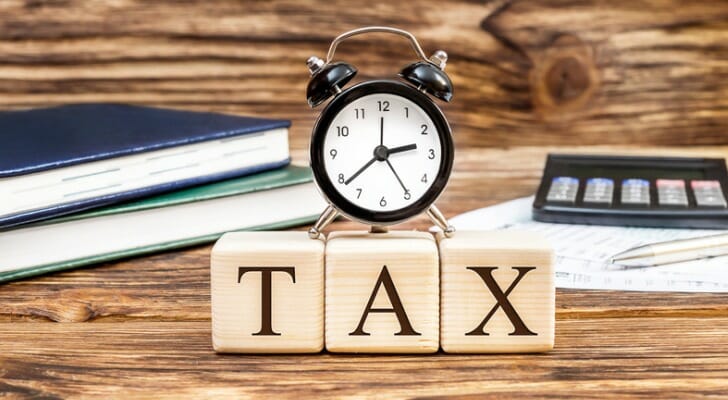A bypass trust is a type of irrevocable trust used in estate planning to help married couples limit federal estate taxes and preserve wealth for heirs. When one spouse dies, assets up to the estate tax exemption are placed in the trust rather than going directly to the surviving spouse. This allows the surviving spouse to benefit from the trust during their lifetime while keeping those assets outside their taxable estate. Bypass trusts are often used to make full use of each spouse’s estate tax exemption and pass more to beneficiaries tax-efficiently.
A financial advisor may help incorporate a bypass trust into your broader estate strategy and tailor a plan that fits your family’s financial goals.
What Is a Bypass Trust?
A bypass trust, also known as an AB trust, is a legal arrangement that allows married couples to avoid estate tax on certain assets when one spouse passes away. When the first spouse dies, the estate’s assets are split into two separate trusts. The first part is the marital trust or A trust. The second is a bypass, family or B trust.
A marital trust is a revocable trust that belongs to the surviving spouse. A revocable trust has terms that can be changed by the person who established the trust. The family or B trust is irrevocable, meaning its terms cannot be changed.
When the first spouse dies, their share of the estate goes into the family or B trust. The surviving spouse doesn’t own those assets but can access the trust during his or her lifetime and receive income from it. The portion of the estate that doesn’t go into the B trust is placed into the A or marital trust. The surviving spouse has complete control over this part of the trust. They can sell, spend or give away assets as they see fit.
The surviving spouse may act as trustee of a bypass trust or name someone else as its trustee. It’s the trustee’s responsibility to ensure that assets from the couple’s estate are divided appropriately into each part of the trust. The trustee also oversees asset management, as outlined by the terms of the trust.
Why Use a Bypass Trust In Estate Planning?

A bypass trust can minimize federal (and state) estate tax for married couples who have substantial assets.
Assets placed in the family or B trust are shielded from federal estate tax up to the annual exemption limit. For 2025, that limit is $13.99 million ($27.98 for married couples) but will increase to $15 million ($30 million for married couples) in 2026 under the One Big Beautiful Bill Act signed into law on July 4, 2025.
Assets in a marital trust that are held by the surviving spouse are not subject to federal or state estate tax. The surviving spouse can also extend tax and credit shelter benefits to his or her heirs. Secondary trusts can hold assets that will be passed on to children or grandchildren.
Additionally, holding assets in a bypass trust allows the surviving spouse to avoid probate. That is the legal process overseen by the court system in which a deceased person’s assets are inventoried. During probate, the court inventories the deceased’s assets, pays creditors and distributes the remainder to heirs.
Potential Drawbacks of a Bypass Trust
Establishing a bypass trust can be costly and time-consuming. An estate planning attorney who specializes in this type of trust is typically essential to the process. If you don’t have extensive assets, estate tax benefits may not justify the cost of creating the trust.
These trusts also require ongoing maintenance. As a result, the surviving spouse is responsible for directing trust assets and keeping records of how the trust is used. If the spouse is older, they can name someone else as a trustee to handle those duties. That adds to the cost of the trust since the trustee is entitled to a fee for their services.
A bypass trust doesn’t give the surviving spouse free rein over assets in the irrevocable part of the trust. There may be restrictions that limit how much income a surviving spouse can draw from the trust. Planners need to make sure they leave enough assets out of the B trust to provide financial support for the surviving spouse.
A bypass trust also doesn’t guarantee exemption from state estate tax. Depending on state laws, it’s possible that you or your spouse may still owe estate tax at the state level on assets received when either of you passes away. Meanwhile, federal estate tax law may change. If lower estate tax exemption limits are ever enforced, that could limit or eliminate tax relief for larger estates.
Bottom Line

A bypass trust’s role in your estate plan depends largely on your estate’s value. It also depends on how much estate tax you want your spouse or heirs to pay when you pass away. If estate tax exemptions are lowered, you may need a bypass trust. Conversely, a bypass trust may be less useful if you don’t have as many assets to pass on to your spouse. Ultimately, a bypass trust can help preserve the wealth you’ve accumulated over a lifetime.
Estate Planning Tips
- Talk to your financial advisor about how best to manage investments held inside or outside of a trust. Finding the right financial advisor that fits your needs doesn’t have to be hard. SmartAsset’s free tool matches you with vetted financial advisors who serve your area, and you can have a free introductory call with your advisor matches to decide which one you feel is right for you. If you’re ready to find an advisor who can help you achieve your financial goals, get started now.
- Consider meeting with an estate planning attorney to discuss all your trust options, beyond a bypass trust. An estate planning pro can guide you through the different types of trusts to help you determine whether you need one and which option is best suited for your situation. They can also help you establish your last will and testament to cover assets not included in a trust or name legal guardians for minor children. You may also want to ask about creating a living will or health care directive, as well as a durable power of attorney to round out your estate plan.
Photo credit: ©iStock.com/kali9, ©iStock.com/LIgorko, ©iStock.com/kate_sept2004
